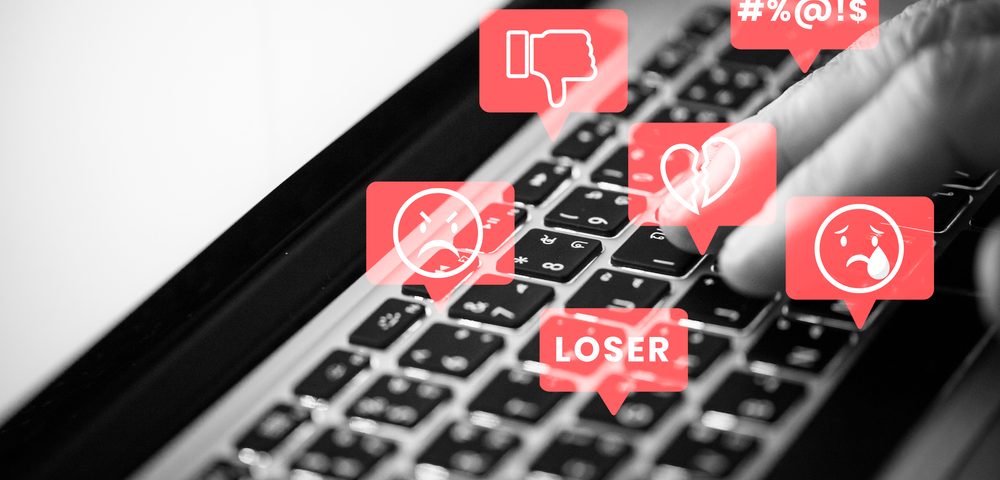
Abusive Teenage Relationships
February 6, 2022
Adverse Childhood Experiences
February 9, 2022
As kids are being introduced to the internet younger and younger, you should prepare your child for what they might encounter – even just by accident. A single wrong click or one wrong follower could lead them down an online rabbit hole of negativity. One of the most dangerous places on the internet can be the comment section of a post. This is where people receive hurtful comments, unwanted opinions, and even death threats. These actions can be seriously hurtful, especially if you don’t have the coping skills to react appropriately. As a parent, you should equip your child with the right tools to respond to negative comments online.
There is no guarantee your child will always have a positive experience online. There are some kids who are at a higher risk of cyberbullying simply because they have characteristics that make them stand out. For example, Utah State University shares, “One quarter, or around 11 million, of black Americans have been the target of online harassment due to their race or ethnicity, and 23% of the LGBT community report having been exposed to comments they considered hateful over the past year.” Your child could be doing everything right online, but there are hateful people who might try to bring them harm for no real reason.
Before social media and the internet, when kids were struggling with a bully at school they could at least come home and feel like they had a safe space. Now it is much more difficult to escape and feel safe when the hate is following you everywhere and can happen at any time. It can be overwhelming for a child to deal with bullies at home and at school, so it is vital to check in with your kids often and make sure they’re feeling safe.
However, some kids don’t always feel comfortable going to an adult when they are being bullied. Sometimes they feel like getting an adult involved will make things worse or will make them look like a snitch. This is a valid reason why you as a parent should be monitoring all social media accounts your child uses. Instead of them having to come and tell you about their issues online, you can observe and learn more about who they’re interacting with online and why.
If you notice your child is receiving negative comments on some of their posts and you don’t recognize who the user is, ask them about the user and how they know them. If the answer is they don’t know, the immediate response should be to block them. While blocking is always the best option for preventing cyberbullying, if your child says the user commenting is a friend of theirs or someone they go to school with blocking might not be the solution. You should try to get more information from them by asking these potential questions:
- What is your guys’ relationship at school?
- Do they treat you the same way in person as they do online?
- Does their negative behavior ever go further than just mean comments?
It may be difficult at first for your child to open up about what is going on, but you should be persistent and continue to ask questions. Even if you can’t fix the problem right away, your child will at least know they have someone who is there for them and is willing to help when they need it. Getting help from a parent can be hard, especially for teenagers who are trying to gain a sense of independence and want to deal with things on their own. That is why you should share some online safety tips with your kids early on so it doesn’t feel like a rule but rather a benefit to keep them safe. Here are some specific examples you can share with your child to combat online negativity:
- Delete the comment or negative post – Although this is a good option, it does not prevent the problem before it can have a significant impact. Every time your child receives a mean comment online it may lower their self-esteem and confidence.
- Disable comments – By disabling comments on your child’s posts it will limit the amount of interaction they have with others online and is a great way to prevent negative comments before they can do any damage.
- Make their account private – You should require your child to keep all their social media accounts private rather than public where anyone can see or comment on their posts. If they feel like they have to have their account public, talk it through with them and have them weigh the pros and cons of displaying their life to anyone online.
- Block the user – Anytime someone posts negative comments the first step should be to block them. Saying mean things back or retaliating is not going to make the problem go away, instead, it could make things worse. Blocking the user should always be the first step because there is no telling what lengths they will go to in order to hurt your child.
Sources:
By: Jessica Lee
MASK the Parenting Magazine a quarterly publication providing solutions for Today’s Families.
The parenting manual offering solutions to the modern-day challenges families face. From Pre-K
through College stay up to date on the modern day issues families face.
Are you up to date on the issues your child is facing?
MASK Mothers Awareness on School-age Kids offers parenting solutions for today’s families. MASK tackles important topics – from drugs and alcohol to bullying and Internet safety -and gives students, parents and the community the knowledge and tools to manage these potential challenges.
Subscribe today! https://www.maskmatters.org/product/mask-the-magazine/
Download and share the MASKmatters app now! Made for children, parents, teachers and in Spanish.
Have solutions at your fingertips
Available free on apple and google play links below
Apple https://apps.apple.com/us/app/maskmatters/id1482305692
Google Play
https://play.google.com/store/apps/details?id=com.maskmatters.maskmattersapp&hl=en_US&gl=US




